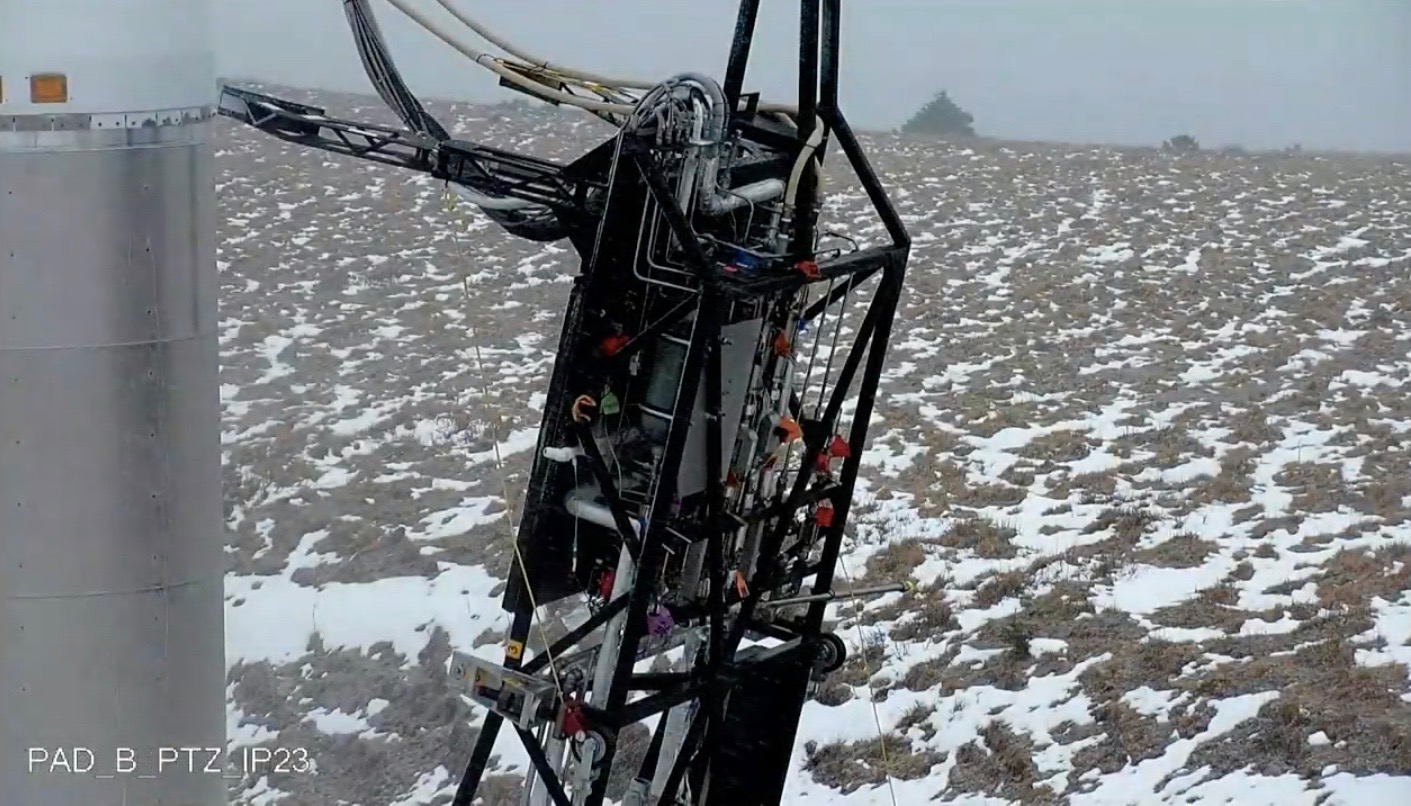Foul weather delays Astra's 1st DARPA Launch Challenge liftoff in Alaska

Breaking space news, the latest updates on rocket launches, skywatching events and more!
You are now subscribed
Your newsletter sign-up was successful
Want to add more newsletters?

Delivered daily
Daily Newsletter
Breaking space news, the latest updates on rocket launches, skywatching events and more!

Once a month
Watch This Space
Sign up to our monthly entertainment newsletter to keep up with all our coverage of the latest sci-fi and space movies, tv shows, games and books.

Once a week
Night Sky This Week
Discover this week's must-see night sky events, moon phases, and stunning astrophotos. Sign up for our skywatching newsletter and explore the universe with us!

Twice a month
Strange New Words
Space.com's Sci-Fi Reader's Club. Read a sci-fi short story every month and join a virtual community of fellow science fiction fans!
Update: DARPA announced on Sunday (March 1) that the next available launch window opens Monday (March 2) at 3 p.m. EST (2000 GMT).
Mother Nature has interfered again with a potentially prize-winning launch.
Spaceflight startup Astra had aimed to launch its first-ever orbital mission today (Feb. 29), from the Pacific Spaceport Complex on Alaska's Kodiak Island. But bad weather — specifically, strong winds and thick clouds — has pushed the attempt back at least another day.
The liftoff is part of the $12 million DARPA Launch Challenge, which seeks to spur the development of private American rockets that can carry small military satellites to orbit cheaply and on short turnarounds. (DARPA is short for Defense Advanced Research Projects Agency.)
Related: The history of rockets
If Astra's first flight, which is carrying four small payloads, succeeds, the company will get $2 million. Acing a second launch in short order, from a different pad at the Kodiak complex, will bring in an additional $10 million.
The contest rules give Astra 14 days to launch mission number one, as counted from the opening of a DARPA-declared window on Feb. 17. Today was day number 13, which means that tomorrow (March 1) could technically be Astra's last chance to get off the ground.
Breaking space news, the latest updates on rocket launches, skywatching events and more!
But DARPA may give Astra a fair bit of extra time to compensate for the weather, which has not cooperated much of the time. Just four of the 13 days to date have been "green" from a weather perspective, meaning environmental conditions presented no problems, Todd Master, the DARPA program manager for the competition, said during a webcast update today. The other days were either marginal or "red" — a trend that's likely to continue tomorrow (March 1).
"Tomorrow’s looking like a red day," Master said. "We're going to get through today’s operation, see how that goes, and then assess from there."
The operation he referred to was a portion of the regular launch-day countdown work with Astra's 38-foot-tall (11.6 meters) Rocket 3.0, which the mission team wants to perform to iron out some kinks identified during a "wet dress rehearsal" yesterday (Feb. 28).
The competition rules call for Astra to get mission number two up by March 18. But that date also assumes no weather-delay compensation.
The DARPA Launch Challenge was announced in 2018, and 18 companies initially expressed interest in competing, Master has said. Three advanced to become "full participants" — Astra, Virgin Orbit and Vector Launch. But Virgin Orbit and Vector Launch dropped out, leaving California-based Astra as the sole competitor.
Astra was founded in 2016 but stayed in stealth mode until earlier this month. The Bay Area company attempted two suborbital test missions in 2018 but has not yet launched an orbital flight.
You can learn more about the DARPA Launch Challenge at DARPA's website for the project here.
- Military space: Spacecraft, weapons and tech
- Cubesats: Tiny payloads, huge benefits for space research
- Can we prevent war in space? These guidelines may help.
Mike Wall is the author of "Out There" (Grand Central Publishing, 2018; illustrated by Karl Tate), a book about the search for alien life. Follow him on Twitter @michaeldwall. Follow us on Twitter @Spacedotcom or Facebook.
OFFER: Save at least 56% with our latest magazine deal!
All About Space magazine takes you on an awe-inspiring journey through our solar system and beyond, from the amazing technology and spacecraft that enables humanity to venture into orbit, to the complexities of space science.

Michael Wall is a Senior Space Writer with Space.com and joined the team in 2010. He primarily covers exoplanets, spaceflight and military space, but has been known to dabble in the space art beat. His book about the search for alien life, "Out There," was published on Nov. 13, 2018. Before becoming a science writer, Michael worked as a herpetologist and wildlife biologist. He has a Ph.D. in evolutionary biology from the University of Sydney, Australia, a bachelor's degree from the University of Arizona, and a graduate certificate in science writing from the University of California, Santa Cruz. To find out what his latest project is, you can follow Michael on Twitter.

